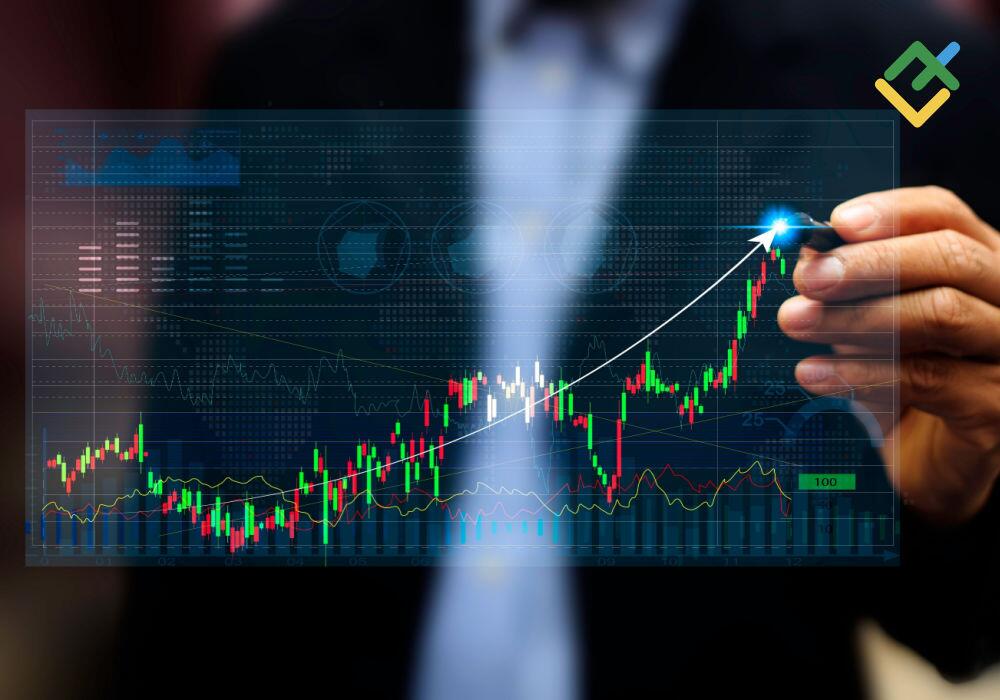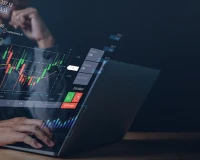-Introduction:
The forex market is one of the most active financial markets in the world, with trillions of dollars being traded daily. This market is known for its high volatility, making it attractive to traders looking for quick profits. However, it also requires strict discipline to avoid significant risks. One of the common mistakes traders make is emotional trading, where emotions such as fear and greed directly influence their decisions.

-The Concept of Emotional Trading:
Emotional trading in forex refers to making trading decisions based on emotions rather than objective and rational analysis of the market. This happens when the trader is influenced by emotions such as fear, greed, excitement, or regret, leading to ill-considered decisions that can result in financial losses. In the forex market, where trading occurs at high speeds and the market can change suddenly, emotional decisions can have a significant impact on traders' accounts.
For example, fear of loss may cause a trader to close positions prematurely before achieving the expected profit, while greed may push the trader to increase the position size excessively in an attempt to make bigger gains. Overconfidence after some profits can also lead to reckless decisions. On the other hand, regret after a losing trade may drive the trader to try to recover losses quickly, leading to poorly thought-out trades that increase the losses.
Emotional trading is a major obstacle to making rational and sustainable investment decisions, and is one of the reasons for significant losses in financial markets. Therefore, it is crucial for traders to learn how to control their emotions and adopt trading strategies based on technical and fundamental analysis, which will allow them to make informed decisions that lead to sustainable success in the market.

-How Emotional Trading Affects Traders' Decisions:
Trading in the forex market or other financial markets is an activity that requires quick and well-thought-out decisions based on careful analysis. However, one of the biggest challenges traders face is emotional trading, which can significantly impact their decisions. Emotions like fear, greed, excitement, and regret can lead to irrational or reckless decisions, damaging traders' accounts and reducing their chances of success. In this article, we will explore how emotional trading can affect traders' decisions and identify ways to avoid it.
1-Fear of Loss
The fear of losing money can be one of the strongest emotional factors affecting traders' decisions. When a trader is fearful due to previous losses or sudden market fluctuations, they may make reckless decisions, such as closing positions too quickly before they reach their targets or deviating from their original strategy. This can lead to missed opportunities that could have resulted in profits, ultimately causing further losses. For example, when the market experiences sudden volatility, the trader may fear a larger loss and rush to close a profitable position early or exit the market entirely without sufficient analysis.
2-Greed for Quick Profit
Greed is another emotion that can harm traders' decisions. When a trader achieves some small profits, they may feel tempted to increase position sizes or enter new trades randomly, believing they can make more profits in a short time. These actions may lead to reckless decision-making and an increase in risk without proper consideration. Traders may open additional positions based on their desire to recover previous losses or make larger gains, without carefully evaluating the market situation or their original strategy. This type of greed often leads to significant losses due to increased risk exposure.
3-Impulsiveness Due to Excitement or Frustration
Frustration or excessive excitement can lead to reckless decisions in the market. When a trader is excited after making some profits, they may impulsively take further positions without confirming the timing or conducting the appropriate technical analysis. On the other hand, when they feel frustrated from a series of losses, they may start making quick decisions to seize any quick profit or "revenge" the market, leading to irrational behavior.
4-Regret and Its Effect on Future Decisions
Regret after losses can have a profound impact on a trader's decisions. Regret over missing a profitable opportunity or losing a trade can make the trader feel the need to quickly recover those losses. This feeling can push the trader to make hasty decisions without proper thought or planning, leading to further losses.
5-Emotional Trading and Decreased Discipline
When a trader is under the influence of emotions, they may lose their ability to stick to a well-defined trading plan. They may start ignoring risk management rules or make decisions based on immediate market movements rather than comprehensive analysis. Losing discipline leads to random and unconsidered decisions, which increases the likelihood of losses.
:max_bytes(150000):strip_icc()/GettyImages-1128046391-bba6a47f1b90424d9684f3521c2b37f6.jpg)
-How to Avoid Making Random Decisions in Forex:
Create a Solid Trading Plan: One of the most important ways to avoid emotional influence in decision-making is to have a clear trading plan. This plan should include specific strategies for entry and exit points, acceptable risk levels, and financial goals. Sticking to the plan helps the trader maintain mental balance and prevents decisions based on momentary emotions.
Effective Risk Management: Traders should follow strict risk management rules. By properly sizing positions and setting stop-loss orders, traders can limit losses in case the market moves against them, thus reducing the psychological pressure caused by losses.
Trade Using Technical and Fundamental Analysis: Instead of making emotional decisions, traders should rely on technical and fundamental analysis. Technical analysis helps understand price movements through charts and indicators, while fundamental analysis evaluates the economic factors affecting the markets. This boosts confidence in decisions and reduces emotional influence.
Avoid Psychological Pressure: If you feel under psychological or emotional pressure due to the market, it’s best to take a short break. Stepping away from trading for a while can help calm down and regain focus, allowing you to make more rational decisions.
Learn from Mistakes: No one achieves success in forex without making some mistakes. It is important to review every trade you made and identify the reasons behind its success or failure. This will help you improve your strategies and reduce the emotional impact on your future decisions.
Use Automated Trading: For some traders, using automated trading systems or robots that execute trades based on specific strategies can be beneficial. These systems operate according to fixed rules without emotional interference, helping reduce errors caused by emotional decisions.

Conclusion:
Emotional trading can have a significant impact on traders' decisions in forex. Through fear, greed, frustration, or regret, traders may make irrational decisions that lead to financial losses. However, the impact of emotions on trading can be minimized by creating a solid trading plan, effectively managing risks, relying on technical and fundamental analysis, and controlling emotions. Awareness of the effects of emotional trading and following well-thought-out strategies can help traders make better decisions and achieve sustainable success in the forex market.










